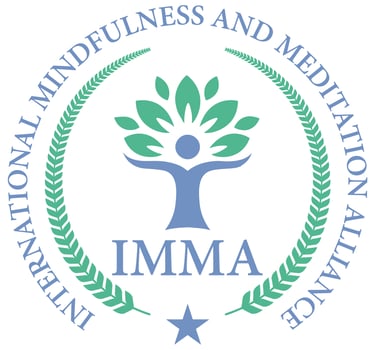Joy as a Revolutionary Act
Audra M
7/16/20255 min read


Joy as a Revolutionary Act
We don't talk enough about joy.
We talk about resilience, strength, boundaries, productivity. We dissect trauma responses and celebrate healing milestones. But what about the medicine of joy—the kind that bubbles up unexpectedly, the kind that doesn't need to be justified or earned?
When we've lived through stress, loss, or burnout, joy can feel foreign or even unsafe. Our nervous systems, trained to scan for danger, might interpret joy as naivety or vulnerability. But reclaiming our joy is not just healing—it's an act of personal liberation that ripples outward into every area of our lives.
Why We've Forgotten How to Prioritize Joy
In our achievement-oriented culture, joy often gets pushed to the back burner. We're taught to focus on productivity, goals, and proving our worth through accomplishment. Rest feels indulgent. Play seems frivolous. Joy? It's often something we postpone for weekends, vacations, or "someday when everything falls into place."
But what if we've been thinking about this backwards? What if joy isn't the reward we get after we've checked all the boxes—but the fuel that helps us show up more fully in every area of life?
When we prioritize joy, we're not being irresponsible or naive. We're recognizing that our well-being matters, that our inner state affects everything we touch, and that sustainable success comes from a place of fulfillment rather than depletion.
But here's the truth that changes everything: ✨ You don't need to earn your joy. ✨ You don't have to wait for everything to be perfect. ✨ You're allowed to feel good—even in the midst of imperfection.
Joy Lives in the Body
If you've disconnected from joy, the best place to start is with the body. Joy isn't a mental concept we think our way into—it's a felt experience that lives in our cells, our breath, our movement.
Joy lives in sensation: warm sun on your skin, laughter rising in your chest, the way your feet feel in the grass. It's the spontaneous smile that spreads across your face when you hear your favorite song, the way your shoulders drop when you finally exhale after holding your breath all day.
For many of us, especially those who've experienced trauma or chronic stress, the body can feel like an unsafe place to inhabit. But joy is often the gentle bridge back to embodied living. When we practice feeling small moments of pleasure—really feeling them instead of rushing past—we're training our nervous system to remember that good things can happen and that we're safe to receive them.
Meditation and mindfulness practices help us come back to the body, moment by moment, until joy starts to feel safe again. Not the forced, spiritual bypassing kind of joy, but the organic, arising-from-within kind that honors both our light and our shadows.
The Neuroscience of Joy
Here's what's happening in your brain when you experience joy: your nervous system releases a cocktail of feel-good chemicals—dopamine, serotonin, oxytocin, and endorphins. But more than just making you feel good, joy actually rewires your brain for resilience.
Research shows that positive emotions broaden our awareness and build our psychological resources. When we're joyful, we're more creative, more connected, more able to see solutions instead of just problems. Joy doesn't just feel good—it makes us more capable of navigating life's challenges.
This is why joy isn't frivolous or selfish. It's strategic. It's medicine. It's a form of resistance against systems that want to keep us small, scared, and dependent.
How to Reclaim Joy (One Gentle Step at a Time)
1. Start Small
You don't need to wait for major life changes to experience joy. Tiny sparks of joy are just as sacred and often more sustainable than grand gestures. A song you love. Your favorite snack savored slowly. Five minutes with no to-do list. The way light filters through your window at 3 PM.
Practice what I call "joy collecting"—actively noticing and appreciating these small moments throughout your day. Keep a running list in your phone or journal. You'll be amazed at how much joy is already present when you start paying attention.
2. Let Go of "Productivity" Thinking
Not every moment needs to be optimized, measured, or justified. Joy can be spontaneous and "unproductive"—and that's exactly the point. You don't need to earn your joy through completed tasks or perfect behavior.
Challenge the voice that says you have to be productive to be valuable. Your worth isn't tied to your output. Sometimes the most revolutionary thing you can do is absolutely nothing—and enjoy it.
3. Play Like Nobody's Watching
When did we decide that play was only for children? Play is how we stay curious, creative, and connected to our essential selves. Let silliness in. Let weirdness in. Dance in your kitchen. Doodle in meetings. Sing in the car. Be wonderfully, wildly human.
If play feels foreign or uncomfortable, start with five minutes of something that used to bring you joy as a child. Draw. Build something. Move your body just for the pleasure of it. Notice any resistance that comes up—it's usually fear of being judged or not being "adult enough."
4. Choose Joy With Your Pain
Perhaps the most radical understanding is this: You don't have to wait to be healed or perfect to feel joy. Joy can coexist with grief, anxiety, uncertainty, and struggle. That's what makes it so powerful.
This isn't about toxic positivity or forcing happiness when you're genuinely struggling. It's about expanding your capacity to hold multiple truths simultaneously. You can grieve and still laugh at a funny meme. You can be anxious about the future and still find pleasure in your morning coffee.
5. Create Joy Rituals
Build small rituals that consistently connect you to joy. Maybe it's a morning dance session, an evening gratitude practice, or a weekly solo date doing something you love. These rituals become anchors—reliable ways to access joy even when life feels chaotic.
The key is consistency, not perfection. Even two minutes of intentional joy practice can shift your entire day.
The Ripple Effect
When you prioritize your own joy, you give others permission to do the same. Children learn that it's safe to be happy. Partners feel less pressure to be your sole source of fulfillment. Friends are reminded of their own capacity for delight.
Joy is contagious in the best possible way. It spreads through families, communities, and cultures. It challenges systems that depend on our unhappiness to function.
Your Joy Assignment
This week, I invite you to try choosing joy. Not because everything is perfect—but because your spirit is worthy of it. Not because you've earned it through suffering or achievement—but because joy is your birthright.
Start with one small thing today. Notice how it feels in your body. Pay attention to any resistance or judgment that comes up. Remember that reclaiming your joy is not just a personal act—it's a political one.
Your joy matters. Your joy is medicine. Your joy is revolution.
💛 What would change in your life if you believed that joy was not a luxury, but a necessity? What would you do differently if you knew that your happiness was not only allowed but essential?
The world needs your joy. Not someday, but right now. Not when everything is perfect, but especially when it's not.
Start today. Start small. Start with this moment.
Your joy is waiting.


